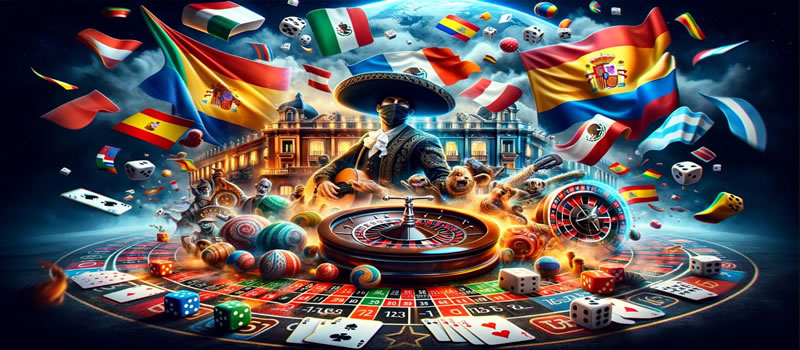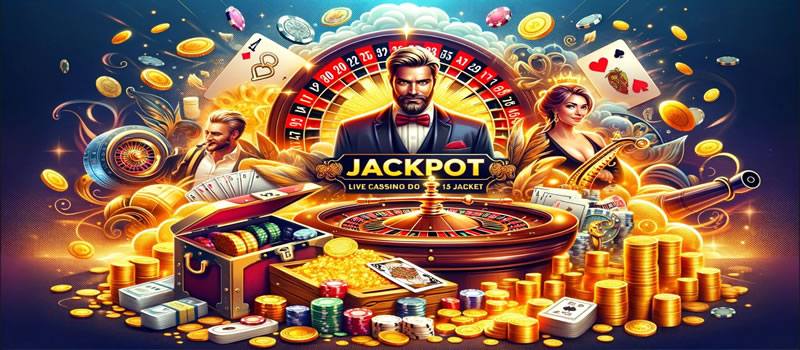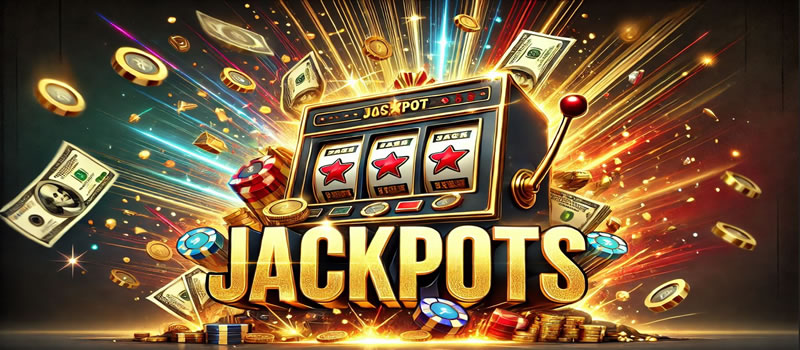The attraction of the jackpot is so strong that people from all walks of life are drawn to it. It presents a nearly irresistible pull comes from the chance of winning a large sum of money through casino games, participating in lotteries, or other games of chance. For millions of people around the world, the idea of becoming wealthy and financially independent overnight holds great appeal. Several psychological factors play a role in the jackpot's attraction.
Key Takeaways
- Why jackpots captivate us: The excitement of landing a huge win entices people because of the potential for transformative gains.The dopamine-driven jackpot effect: Our brain's reaction to potential gains, such as winning a jackpot, is fueled by the release of dopamine, creating a feeling of pleasure and motivation.Risk and reward dynamics: The attraction to jackpots is fueled by the combination of risk and potential reward, activating the brain's reward system.Optimism and hope in jackpot pursuits: The possibility of winning big impacts our mindset, fostering feelings of hope and optimism for the future.Social and cultural influences: The jackpot’s appeal to us is influenced by social norms, cultural norms, and peer pressure.
The ability to indulge in luxuries without financial concerns and the possibility of becoming financially free are the main draws for many. The attraction of potentially affording anything, such as luxurious clothing or far-flung travel, motivates people to strive for big successes. In addition, a major part of the jackpot's appeal stems from its unexpected nature & uncertainty. One cannot easily duplicate the adrenaline rush that is felt when imagining a big win with a single ticket purchase or by a large slot machine payout. The allure of the jackpot also taps into our innate desire for adventure and excitement.

A neurotransmitter called dopamine is released in response to enjoyable moments like indulging in delectable food, engaging in fun activities, and yes, hitting a huge win. Dopamine plays a crucial role in the brain's reward circuits. Our brains release dopamine in anticipation of a possible reward, such as a lottery win, which feels great and makes us want to go after the reward even more. The dopamine-driven pursuit of huge wins. We are strongly motivated to seek out big wins by the strong psychological pull that is created when dopamine is released in response to possible rewards.
The possibility of winning a massive prize causes the brain to release a large amount of dopamine, which produces an irresistible rush and joy. This dopamine surge that fuels our craving to take chances in the hopes of landing a big win & pulls us towards jackpots. Addiction and compulsive behavior: the dark side of dopamine. The brain releases dopamine in a cascade when one is expecting great success, which can create an extremely addictive feeling of excitement and anticipation. Some people develop an addiction to gambling, which can be explained by the role dopamine plays in attracting us to jackpots. A strong psychological pull that can result in compulsive behavior & an inability to resist the allure of big wins is created when dopamine is released in response to big win potential.
Our natural desire for risk and reward is closely tied to the allure of the lottery. The chance of a huge win is a risky proposition that draws in our deep need for risk and excitement. Our interest in jackpots is fueled by the rush that comes with going after big victories. Lots of people find great resonance in the idea of taking a risk and possibly earning huge rewards, which motivates them to gamble in the hopes of claiming the grand prize. Humankind’s history as hunter-gatherers may also provide insight into the connection between risk-taking and reward-seeking in our fascination with jackpots.
Risk-taking was essential for survival throughout history because it frequently meant the difference between obtaining essential resources and going hungry. This behavior became beneficial in obtaining food, shelter, and other necessities, it became hardwired in us to seek out high-reward risks. This natural inclination for risk continues to influence us today, leading us to chase jackpots and urging us to take more risks in the hopes of hitting big.
Our attraction to jackpots is driven by risk & reward, which connects with our craving for freedom and autonomy. The chance to become wealthy offers the chance to live life without limits and according to one's own terms. The opportunity to take a risk and perhaps landing huge rewards appeals to our desire for control and self-determination, which motivates us to go for big wins in the quest for financial independence. A huge part of jackpot allure is the optimism and hope that big wins inspire. The chance for a massive win provides a ray of hope for a brighter future, which fuels our ambition and inspires us to aim for large wins.
It is hard to ignore the sense of hope that comes from the idea that one lucky moment has the potential to improve our lives. The possibility of vast wealth draws on our innate yearning for optimism & hope, encouraging us to take chances in the quest for financial security and stability. The optimism and hope psychology also has a significant impact on how we think about going after big victories.
We are energized by hope and we are motivated to pursue big wins despite the odds when we have the possibility of winning the jackpot. This sense of hope and excitement can be highly addictive. We take risks in search of financial security because we have an unshakeable sense of hope that one lucky win could improve our lot in life. The influence of optimism & hope on our thinking when it comes to going for big wins also connects to our deep desire for control of our life choices. Our optimism is fueled by the possibility of striking it rich, which inspires us to take risks in the search for financial freedom and freedom from financial constraints. It is impossible to overestimate the power of social and cultural pressures on our attraction to jackpots.
We are bombarded with messages that strengthen the allure of striking it rich, with media portrayals of sudden wealth to societal norms to attain financial success. Our attitudes toward chasing large wins are shaped by cultural and social messages, which also feed our addiction to jackpots and spur us to take chances in the pursuit of money. Social pressure and social norms are just two more examples of how cultural pressures shape our attraction to jackpots. Seeking large victories is regarded as an admirable, glitzy, and exciting pursuit in many social circles.
Individuals might gamble more in an effort to gain validation or impress others by feeling pressured to match the success of peers or those who have won big. Our innate need for status is further evidenced by the societal influences on our draw to jackpots. The reason we crave jackpots and encourages us to take chances in the hopes of winning big is the chance for wealth and fame, which can boost our status. The Addicting Cycle of Pursuing Huge Wins. Dopamine's influence on big wins can set off an addictive cycle that causes individuals to keep gambling in the hopes of hitting it big, frequently at great personal expense.
The act of chasing losses can result in a harmful pattern that could seriously impact an individual's financial stability and general well-being. The Dark Side of the Jackpot: Mental Health Effects. Pursuing big wins can take a toll on personal relationships and emotional well-being in addition to financial losses. People who develop an addiction to gambling frequently struggle with mounting debt & money problems, which can create anxiety, depression, and hopeless.
In addition, live casinos providers chasing jackpots can damage personal relationships, leading to isolation & isolated. Support and Awareness for Addicts. The dangers of going after large winnings highlight that people who may be experiencing compulsive gambling behavior need compassion and assistance.
Society must understands the possible risks associated with chasing jackpots and offers assistance to individuals who may be at risk of developing addictive behaviors. By doing this, we can work towards a setting that is safer and more encouraging for people who might be having trouble the lure of the big win. Develop strategies for responsible gambling behavior to allow people to control the psychological effects of jackpot pursuits.
Limiting the amount of time and amount of money invested on gambling can prevent compulsive habits and reduce the risks in chasing large wins. For those who may be battling addictive behaviors linked to chasing jackpots, getting help from friends, family, or professional counselors can be hugely beneficial. Individuals can protect themselves from developing compulsive gambling behavior patterns by learning effective coping mechanisms for handling stress and anxiety.
Individuals can find alternatives to manage their stress without turning to high-risk gambling activities by staying active, practicing mindfulness, or finding enjoyable hobbies and pastimes. In conclusion, individuals of all backgrounds are drawn to the jackpot because of its irresistible attraction. Our attraction to big wins is driven by numerous mental triggers, ranging from the dopamine response in reaction to potential gains to our innate desire for risk and reward. However, to avoid falling into gambling addiction, individuals need to recognize the dangers connected to chasing jackpots and adopt healthy habits for managing the emotional effects.
People can experience the excitement of chasing large wins without giving in to the negative effects of compulsive gambling behavior by understanding the mental triggers behind jackpot attraction & cultivating responsible, healthy gambling habits.

FAQs
Why are we drawn to huge jackpots?
The psychology behind the attraction to winning big jackpots is rooted in the human brain's reward system. When we anticipate the possibility of winning a large sum of money, our brains produce dopamine, a neurotransmitter associated with pleasure and reward. This surge of dopamine makes us feel good and anticipation, which can be highly addictive.
What keeps people playing after they lose?
People continue to play for jackpots even after experiencing losses due to the effect of near-miss events. When players almost win, it triggers a surge of dopamine similar to that of an actual win. This close-call event can create a sense of hope and encourage continued play, despite previous losses.

How does social pressure fuel jackpot attraction?
Social factors are key in our craving for jackpots. The visibility of jackpot winners in the public eye and within social circles can create a sense of social proof, leading individuals to believe that winning is achievable and desirable. On top of that, the joy and celebration around big wins can motivate others to start gambling.
Are there any potential negative effects of the attraction to winning big jackpots?
Craving big wins can lead to potential negative effects, particularly when gambling becomes addictive. Excessive gambling in pursuit of jackpots can cause financial problems, damage personal relationships, and trigger emotional distress. Moreover, the craving for jackpots can create false hope and a distorted perception of probability.
What are healthy ways to handle jackpot attraction?
Individuals can manage their attraction to winning big jackpots with smart strategies by setting limits on their gambling behavior, practicing responsible gaming, and seeking support if they feel their attraction to jackpots is becoming problematic. It's important to keep gambling in perspective and to prioritize enjoyment and entertainment over the pursuit of large wins.